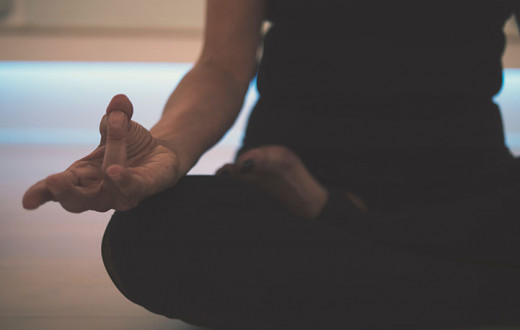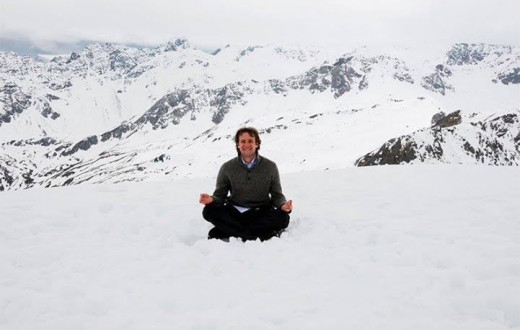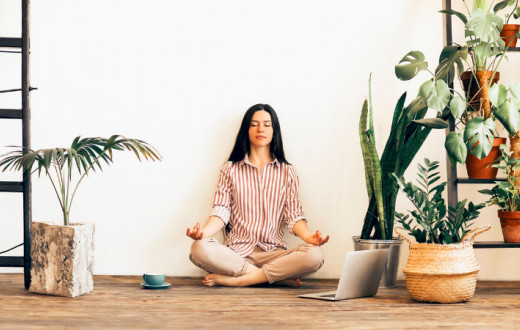
Sleep is a vital source of energy for the body and mind, providing our systems with the rest and rejuvenation they need for long-term health. Have you noticed that when you are sleep-deprived, you feel grouchy, irritable, and (let’s be honest) a bit crazy?
The quality of our sleep impacts everything from our hormones to our emotions and energy levels. Getting deep sleep every night helps reset and restore our energy levels, which is essential for our overall sense of well-being. Insufficient sleep at night can lead to awful mornings and daytime fatigue, resulting in unproductive days.
If you have trouble falling asleep or waking up in the morning, it may be time to evaluate your sleep hygiene to see how your habits may be preventing you from getting the quality sleep you need.
Let’s look into what sleep hygiene is and explore some of the changes you can make to your daytime and nighttime routines to help improve your sleep.
Topics covered:
Introduction to good sleep hygiene
Good sleep hygiene is crucial for a good night’s sleep and overall health, with the National Sleep Foundation recommending seven to nine hours of sleep each night. Practicing good sleep hygiene helps prevent sleep deprivation and insufficient sleep, which can contribute to the prevention of chronic diseases and improved mental health.
According to the American Sleep Association, sleep hygiene refers to behavioral interventions that individuals can implement to promote good sleep. These science-backed, healthy habits and practices, performed during the day and before bedtime, help create the ideal conditions for a healthy sleep. Good sleep hygiene can mean the difference between a restful night and a restless one.
A consistent sleep schedule and bedtime routine are key components of good sleep hygiene, helping to regulate the sleep cycle and improve sleep quality.
24 Sleep hygiene tips

A significant amount of research has been conducted in recent years to explore the importance of proper sleep hygiene and its crucial role in achieving a good night's sleep. Below are some simple sleep hygiene practices that can help you have a deeper, more restful sleep every night.
Set a consistent sleep schedule

1. Follow your body’s circadian rhythm and keep a consistent sleep schedule. Go to bed at the same time each night, ideally by 10 pm, and get up at the same time each morning, ideally by 6 am. This simple tip can significantly improve the quality of your sleep.
Develop healthy daily habits

2. Include regular exercise such as walking or yoga, as well as 20 minutes of meditation in your daily routine. If your body and mind are relaxed and at ease, getting to sleep will be easier.
3. Eat healthy foods, and drink 6 to 8 glasses of water each day. Have a light dinner, and finish it by 8 pm at the latest.
4. Avoid naps and any caffeinated drinks after 3 or 4 pm.
5. Practicing relaxation techniques, such as deep breathing or progressive muscle relaxation, can help reduce stress and promote relaxation.
Create a bedtime routine

6. Limit the use of blue-light devices like cell phones and computers in the last hour before bed. The blue light from these devices can keep your nervous system and brain alert at night and disrupt sleep patterns. Even late-night TV can be too stimulating.
7. Learn to unwind. If you like, you can play some soft, relaxing instrumental sleep music in the evenings to go into relaxation mode, or you can use sleep meditation to relax. Here is our complete sleep meditation guide to help relieve sleep problems.
8. Drink some warm milk with turmeric before bedtime.
9. Have a warm bath and wear comfortable, breathable pajamas to bed.
10. Write a gratitude journal, or say a simple prayer before bed. You can also try relaxation exercises, such as a body scan or a Yoga Nidra practice.
Optimize your sleep environment

11. Keep your bed neat, clean, and cozy. It’s also essential to have a comfortable mattress, pillows, and bed linens. The more comfortable you are, the easier it will be to fall asleep and stay asleep.
12. Find the optimal temperature in your room for sleeping. For most people, a bedroom temperature between 60°F and 67°F is ideal for sleeping. Allow some fresh air to circulate in your room if you can.
13. Keep your bedroom as dark as possible using curtains or an eye mask as needed.
14. Minimize sound in your bedroom, other than white noise if needed. You can also use earplugs.
Overcome common barriers to sleep

15. Identifying and addressing common barriers to sleep, such as stress and anxiety, can help improve sleep quality and reduce sleep problems.
16. Reduce or avoid caffeine, alcohol consumption, and recreational drug use.
17. Seeking professional help, such as a sleep specialist or therapist, can also help address underlying sleep disorders and improve sleep quality.
Get morning sunlight

18. Getting morning sunlight exposure can help regulate your body’s internal clock, improve sleep, and make it easier to wake up.
19. Exposure to natural light can help suppress the production of melatonin, the sleep hormone, and improve alertness.
20. Getting outside in the morning, even if you’re just sitting and enjoying nature, can also help improve mood and reduce stress.
21. Exercising outdoors in the morning, such as walking or jogging in the park, can improve sleep quality and reduce sleep issues.
22. Try these Sun Salutations in the morning sunlight for a great workout and to help regulate your circadian rhythm.
Meditate for mental and sleep hygiene

According to the Sleep Foundation, “If insomnia is at the root of your sleepless nights, it may be worth trying meditation. Deep relaxation techniques have been shown to increase sleep time, improve sleep quality, and make it easier to fall (and stay) asleep.”
23. Try guided meditations specifically designed to reduce stress and improve sleep quality.
24. Learn a meditation technique to take control of your mental well-being and improve and experience better sleep.
Learn SKY Breath Meditation for enhanced deep sleep
Independent research on SKY Breath Meditation indicates that SKY practitioners spent 13% of their total sleep time in a deeper restful SWS state (stages 3 & 4 sleep). In contrast, the control group spent only 4% of their time in deep sleep.
Learn SKY and unlock restful nights by registering for the Art of Living Part 1 course here.
Related articles

Meditation for Better Sleep: How to Tuck Your Mind into Bed
Beauty Sleep: More than Skin Deep and More Important than You Think
Yoga Nidra for Sleep: How to Sleep Better Tonight
Are You Meditating or Sleeping? Understanding the Key Differences
Sleep Tips from an Ayurvedic Practitioner and Former Insomniac
How the Right Sleeping Direction Can Give You a Better Night’s Rest
Can Meditation Replace Sleep? Find Out Before You Try It
How to Fall Back to Sleep and Feel Rested in the Morning






























